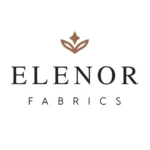What is Private Label Textile?
Private label textiles refer to textile products manufactured by one company but sold under another company’s brand name. This allows retailers and brands to offer exclusive textile products, such as clothing, bedding, towels, apparel, and other fabric-based items, without the need for their own manufacturing facilities. Private label manufacturers provide a range of services from product design and development to manufacturing and sometimes even packaging, allowing brands to customize products to their specifications and market needs. This approach enables brands to control product quality, pricing, and branding, helping them to differentiate themselves in the market, cater to specific customer preferences, and build brand loyalty. It’s a popular strategy for retailers looking to expand their product lines with minimal investment in production infrastructure, focusing instead on brand development and customer engagement.
What is Contract Textile Manufacturing?
Contract textile manufacturing refers to the production of textiles and fabric-based products by a company for another business under a contractual agreement. This arrangement allows businesses to outsource the manufacturing of textiles, such as clothing, furnishings, household textiles, and industrial fabrics, to specialized manufacturers. These manufacturers have the expertise, technology, and capacity to produce high-quality textiles that meet specific requirements and standards. The practice enables brands and companies to focus on their core competencies, such as design, marketing, and sales, while leveraging the manufacturing capabilities of experienced producers. Contract textile manufacturing is a critical component of the global textile supply chain, providing flexibility, scalability, and access to specialized manufacturing techniques and materials.
What is the size of the textile market?
The global textile market continues to exhibit steady growth, with various projections indicating significant expansion in the coming years. In 2021, the market was valued at USD 1,206,527.99 million and is anticipated to grow at a compound annual growth rate (CAGR) of 3.93%, reaching USD 1,520,579.14 million by 2027. In the U.S., the textile market was estimated at USD 251.79 billion in 2022, with expectations of a 3.1% CAGR from 2023 to 2030, ultimately reaching USD 320.40 billion by 2030. Furthermore, the global textile market size reached USD 991.23 billion in 2021 and is forecasted to achieve USD 1.99 trillion by 2030, exhibiting a robust CAGR of 9.12% during the forecast period from 2022 to 2030. These projections underscore the continuous growth trajectory and substantial opportunities present within the textile industry on both a global and domestic scale.
What is the current size of the global contract textile market?
The contract textile market has experienced robust growth recently, with its value increasing from $5.26 billion in 2023 to an anticipated $5.62 billion in 2024. This growth trajectory represents a significant compound annual growth rate, indicative of the sector’s expanding demand across various industries, including hospitality, healthcare, and automotive. This upward trend is driven by technological advancements in textile production, a growing preference for sustainable and eco-friendly materials, and broader global market access facilitated by advancements in logistics and supply chain management. The market’s continued expansion reflects its ability to adapt to changing industry needs and consumer preferences, positioning it for sustained growth in the coming years.
How to Find the Right Textile Private Label and Contract Manufacturers?
Finding the right textile private label and contract manufacturers requires a strategic approach that prioritizes compatibility and quality with your brand’s needs and values. Begin by identifying manufacturers with a proven track record in your specific textile category, whether it be apparel, home furnishings, medical textiles, or another niche. Evaluate their commitment to quality through certifications, such as ISO standards, and ensure they comply with relevant regulatory manufacturing practices. Assess their production capabilities, scalability, and flexibility to meet your order volumes and timelines. Consider their innovation potential and willingness to collaborate on product development. It’s also recommended to examine their supply chain transparency and sustainability practices if these align with your brand values. Conducting due diligence through site visits, obtaining samples, and checking references from existing clients can provide further assurance. Ultimately, a successful partnership will hinge on clear communication, mutual understanding of expectations, and shared goals for quality, and innovation.





